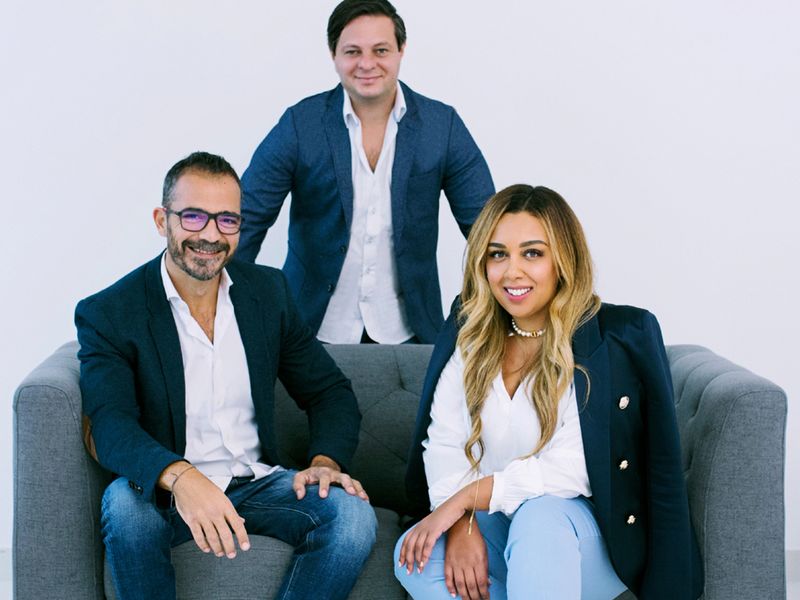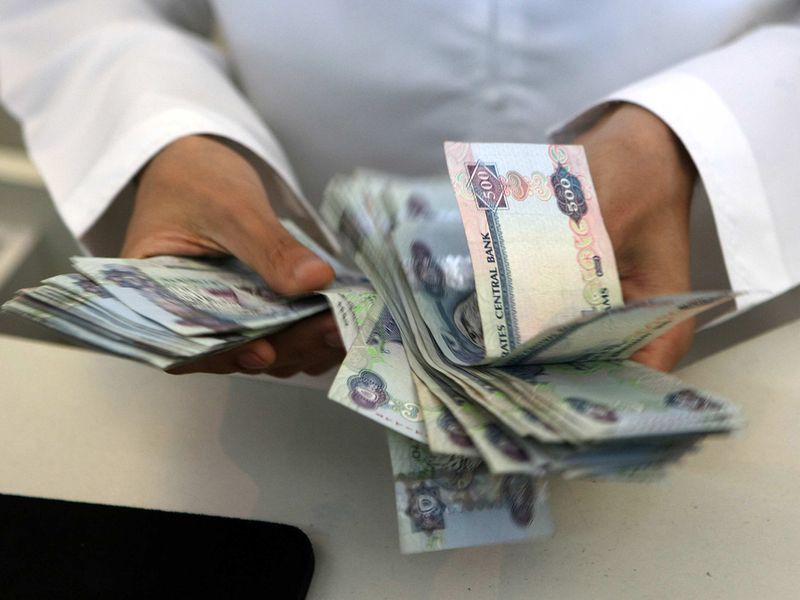[ad_1]
“By 13, if I’m not studying or training, I’m working, and my summer job in Dubai was in construction,” said Walid Shihabi, a 46-year-old Lebanese-Palestinian expatriate recalled. He inherited this work ethic from his father, who moved to Dubai in 1964 to build roads, schools, hospitals and housing in the booming city.
Shihabi doesn’t see the work he did as a teenager as a punishment, but an opportunity. “I started my first business at the age of 14, subcontracting maintenance work, and then over the next six years I built up income from the business.”
He has learned that opportunities are always there if you are willing to take them. “These experiences have helped me build knowledge from scratch, understand what everyone does and why, and listen and learn before I speak.”
Shihabi has over 15 years of investment banking experience in Dubai and the wider Middle East, primarily as Managing Director of asset management firm SHUAA Capital and Chief Executive Officer (CEO) of investment bank SHUAA Securities.
He has been instrumental in raising capital for some of the most prominent listed companies in the Middle East, including DP World, Air Arabia, Emaar Properties, Royal Jordanian and Petrofac, among others, while also disseminating data and research markets on the region’s capital.
This is how his entrepreneurial journey began.
Shihabi exited investment banking in 2012 to set up a Dubai-based real estate fund and a property and hospitality management company. Over the ensuing decade, he developed an understanding of how real estate as an asset class works in the UAE, including measuring investment parameters, points of operation, and core technology and data requirements.
At that time, Shihabi gradually transformed from a real estate investment technology user to an innovator in the field, which led him to co-found a real estate technology startup with seasoned business partners Silvia Eldawi and Omar Abu Innab.
Shihabi’s startup ‘Keyper’ aims to improve the way UAE real estate investors manage their portfolios and expense reporting by allowing them to monitor digital payments, rent updates, occupancy rates, monitor portfolio valuations, cash flow in real time, while also maintaining A digital document repository, requests and status – all in one application.
“In today’s on-demand world, technology is critical to interacting with landlord investors in a new, data-driven way. Eliminating any redundant processes and repetitive work that once made up a lot of the work of a property manager is now possible Automation. Landlords and property management teams can ensure their assets remain competitive,” Shihabi said.
Why is it a major cost to a business?
Shihabi said that as a tech startup with a real estate operations team, their main pre-operational costs revolve around operating licenses and corporate structure.
He added that other major expenses involved finding and recruiting qualified talent in technical and product development, commercial and operational staffing, data and systems procurement, and office setup.
“Startup and incubator WeBuild Ventures provided initial capital for the pre-operational stage,” Shihabi said. (What do you mean by a business incubator? A business incubator provides startups and new businesses with access to the resources they need.)

Walid Shihabi, with business partners Silvia Eldawi and Omar Abu Innab
Image source: provided
Shihabi shares two entrepreneurial secrets from his experience.
Tip #1: Learn to deal with sudden and disruptive changes, both in context and in regulatory frameworks.
Shihabi observes that Dubai’s start-up ecosystem has changed dramatically since his first venture, with access to capital, government infrastructure, and the general support and maturity of the ecosystem; thus, today’s participants are far better off .
“They say you have to be a little bit eccentric to jump into entrepreneurship from a stable and secure career. I introduced a simple discipline into my life. Be aware of the situation, recognize the changing environment, and build clarity against new information decision-making path.”
Find answers to the following questions: “How does it affect our current business and roadmap? What is the specific material impact? Where exactly are the threats and what are the opportunities associated with change? Does it not require a response, but a tactical response, or a comprehensive one? strategic shift?
“Develop relevant plans with the right internal and external resources, then implement monitoring and adjustments. With this discipline, you will find that 75% of your information and processes are noise, and about 20% will require tactical adjustments (for example, in operational processes or messaging), and only about 5% deserves strategic consideration. Learn how to recognize the difference between 5% that can mean a thriving business and a failing business.
You have to be a little eccentric to jump into entrepreneurship from a stable and secure career
– Waleed Shihabi
Tip #2: There are no shortcuts to success; prosperity always requires deep-rooted knowledge.
Research, learn and relearn, says Shihabi, who suggests that people should build a belief and knowledge structure, then dismantle it and start over. Simply chasing the next big thing without spending time and energy grasping what you want to achieve and why; is not appropriate, he added.
He recalls his career in the investment field; after graduating from university, “there is no stock exchange in the UAE… My first task was to build the price history of the stocks in the market, then build a stock index for the UAE market and start to understand market trends, returns , the market value and historical performance of listed companies.
“A local newspaper has been publishing indicative prices for listed company shares for years, but there is no central historical record. So, for two months, I went to the Dubai Chamber of Commerce library on Dubai Creek every day, where there was an archive from a few years ago. For that newspaper, I would take a bag of coins for a coin-operated copier, make a photocopy of the price list for each day four years ago, and fill out the copy on a spreadsheet.
“Then, over the next two months, I started visiting the offices of listed companies in each country, requesting copies of their financial statements and annual reports, and reading them from cover to cover. By the end of those four months, I’m probably the person in the world who understands historical price trends and the performance of UAE-listed companies best, and he’s 21.”

Shihabi recommends early-stage investing in real estate, based on its merits as an investment asset class.
Where do you like to invest your savings?
According to Shihabi, real estate is an evergreen asset class that is finite and will always have utility, value and generate income. My dad used to say, “‘Real estate can get sick, but it never dies.’ It can be destroyed, but it’s the bedrock of a family’s wealth and the ultimate haven for savings. But, it also takes nurture and knowledge; you can Overpaying, mismanaging or losing money in it, and it tends to have a very high emotional element.”
As such, he recommends early-stage investing in real estate, investing on its merits as an investment asset class. “Let’s say you can invest the accumulated income in preserving and building up your property value and building a free portfolio. In this case, that will put you in a good position over time,” he adds.
Having a diversified savings portfolio is critical; 40% of savings distributions tend to be even and perform well over time in an index-based allocation approach to equities, debt and commodities globally, he said.
He also trains his kids (ages 11 and 13) to save and learn investment discipline and research at the same time. “My kids have a stock trading account where I contribute Dh1,000 per month. They can buy and hold any stock as long as they can convincingly make an investment case.”
[ad_2]
Source link